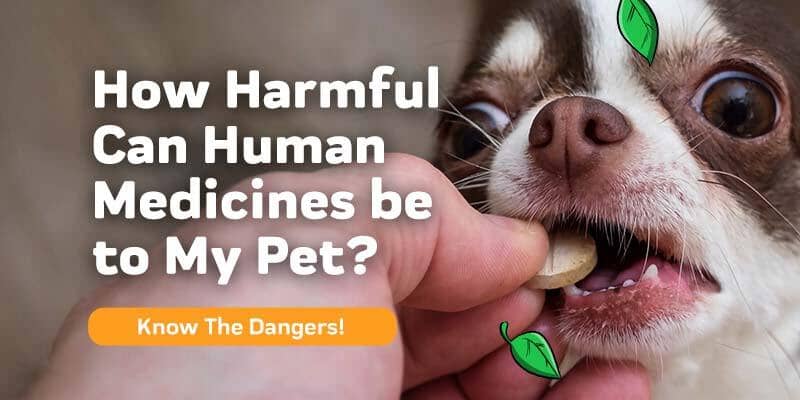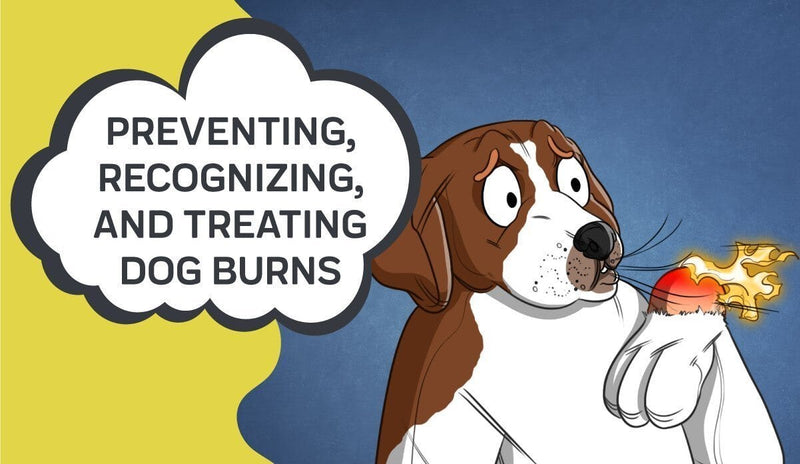It's often dog owners see their dogs panting heavily. Dogs do it for all kinds of reasons, plenty of which are harmless. Often, your pet may just be trying to cool down, or is taking a breather after a swim or run around the garden. Maybe it's a holiday and they are feeling stress due to the neighbor’s fireworks.
These common reasons for panting are nothing to worry about. Rapid breathing and their tongue hanging out their mouths are normal healthy behaviors for your pet, helping them rest and recuperate. However, dog panting can reflect wider issues if accompanied by other symptoms, or if your dog is doing it heavily.
Pet health is of utmost concern to all pet owners. It is therefore important you know what to look for in your pet. Looking out for when and why your pet is panting, how they are doing it, and if any other symptoms accompany it can help you track your dog’s well-being and know if there’s a problem. Hopefully, our guide can help protect your dog’s health.
Why Do Dogs Pant?
Part of the challenge of working out when your pet has a problem is knowing what is healthy. You don’t want to worry about your pet’s regular behaviors while you miss unhealthy ones. Dogs do this for the following reasons:
Cooling Down
This isn’t a great secret to reveal, but pet health isn’t like ours. Your pet’s physiology is different, and they have fur. When they get hot playing, running around, or swimming in a lake, they can’t sweat to cool themselves down. Although they can sweat a little through their paws, this sweating isn’t nearly enough to cool them down.
Similar to humans getting out of breath, dogs pant when they exercise. But dog panting also works to cool them down. The process swaps hot air in their lungs for the cooler air outside. This enables the water on your dogs’ tongue and in their mouths to evaporate, working like sweating does for us to cool them down.
Don’t get worried that your dog is panting as soon as they start running around. It isn’t a very efficient way to cool down, which means they will start doing this as soon as they are even a little warm. Panting becomes more intense and heavier the hotter they get. The challenge for you is to work out when your pet is too warm.
Feeling Anxious and Stressed
Panting isn’t always about your dog’s physical state. Your dog is likely to do it if they are feeling stress or anxious. Fireworks, separation anxiety, and visits to the vet, for instance, can all lead to anxiety-induced panting.
Often, this will be accompanied by your dog pacing around, whining, yawning repeatedly, and shaking a lot. Look out for these signs, and try to relax your dog or remove them from the situation if possible.
Happiness
Dogs pant when they are playing just because they are enjoying themselves. You can see this if your dog’s tail is wagging in a happy way, and the rest of your pet’s features look relaxed. Many people think that a dog’s bright eyes and gentle panting are a dog’s smile.
What Makes Dogs Pant Excessively? The 8 Common Causes
Now that you know what is healthy, you are in a good position to monitor pet health. Panting when it is cool or long after they have stopped running around, or longer, deeper breaths may indicate a more serious problem. If you can’t work out any immediate reason why your dog is panting so heavily, take your pet to the vet as soon as possible.
Heatstroke
If your dog continues panting for a long time after they have stopped running around or cooled down, then this may indicate heat stroke.
Given how inefficient their bodies are at cooling down — thick fur, minimal sweating — dogs are at risk of heatstroke throughout the summer. That’s why you should never leave them locked in a car during the summer, and you should move them out of the sun if you notice them sitting in direct sunlight.
When a dog gets heatstroke, they will breathe very heavily. Their eyes may appear glazed and their tongue and gums a very dark red color. Their heart rate will likely be very fast, their body temperature high, and they will be extremely thirsty. If you notice these symptoms and excessive panting during the summer, move your dog inside and provide your dog with lots of water.
Avoid walking your dog during the middle of the day when it's hottest. Instead, take them out early in the morning or the evening.
Cushing’s Disease
Cushing’s disease is a condition that causes a dog’s adrenal glands to produce too much cortisol.
While excessive panting is one of the earliest symptoms of this hormone imbalance, it is important to be on the lookout for other symptoms. Too much cortisol increases appetite, so your dog may begin eating excessively. Other symptoms include increased drinking and urinating, thinning hair, and developing a potbelly.
Respiratory Problems
Any breathing disorders can cause dogs to pant heavily because they make breathing harder. Two common breathing problems to consider are pneumonia and laryngeal paralysis.
The former is caused by an infection and inflames the lungs and lower respiratory tract. Laryngeal paralysis occurs when cartilage in the opening of the windpipe (larynx) fails to open properly, restricting airflow. If your dog has laryngeal paralysis, their breathing will sound raspy and much louder than normal.
Pain
Dogs can be very good at hiding pain. But once dogs reach a certain level of pain or discomfort, they can no longer disguise it. Panting is one strong indication that they are in pain. Indeed, they may well do it long before clearer indications of pain, such as limping or whining.
One tell-tale sign that your dog is in pain is if they are panting for what seems like no reason, for instance, during the night time. If they are, look out for other signs of pain such as restlessness or licking or biting a certain area. Dogs try to mask pain, so watch out. Take them to the vet as soon as you suspect something is wrong.
Allergic Reaction
Panting reveals internal physical diseases that aren’t obvious to you. One such malady is an allergic reaction, which might not be obvious to you at first glance. They may be having a reaction to new medication or ingest something poisonous without realizing it.
If your pet is struggling to breathe, seems lethargic, or is vomiting alongside their excessive panting, there’s a good chance they have an allergic reaction. Take them to see a vet immediately if you see this.
Anemia
Excessive panting in dogs may be a sign of anemia. Anemia occurs when there is a large decrease in the number of red blood cells.
Red blood cells move oxygen around the body, so even a moderate decrease in their count deprives your pet of oxygen, which can lead to serious issues. Your dog will struggle to breathe, and so they will breathe much more heavily if they have anemia.
Obesity
Just as humans struggle with it, dogs also battle obesity. It can lead to heart and lung problems, diabetes, cancer, and arthritis. An obese dog will breathe heavily as they fight to get more oxygenated blood around their system.
If your dog is overweight and panting, it is a sign they are struggling to get oxygen around their body. It may also indicate your pet is suffering from at least one of the different problems obesity can cause. Talk to your vet as soon as possible before obesity causes long-term issues for your pet. Long-term obesity can dramatically reduce lifespan.
Heart Failure
The heart pumps blood and oxygen around the body to vital organs and throughout the system. It works no different for a dog than for us.
Heart failure will deprive key organs of oxygen, and make it more difficult for dogs to get oxygen into their system. They will pant more heavily than usual as they fight to get oxygen moving around their body.
If your pet is struggling with heart problems, they are likely to breathe heavily all the time, even when they are not doing anything. Other signs of a failing heart include coughing, general weakness, and intolerance to exercise. If you notice these signs alongside excessive panting, it may indicate your dog has some heart problems.
Conclusion
Pet health is a serious concern for all pet owners. Any pain your pet is suffering can cause you to stress too. To monitor your dog’s health, it is important to understand how and why they pant. Knowing this, you will be able to judge if your dog is doing it excessively, and take them to a vet immediately.
Sources:
My dog won’t stop panting, what should I do?When is Dog Panting Abnormal?
Is Your Dog Panting Too Much?
















